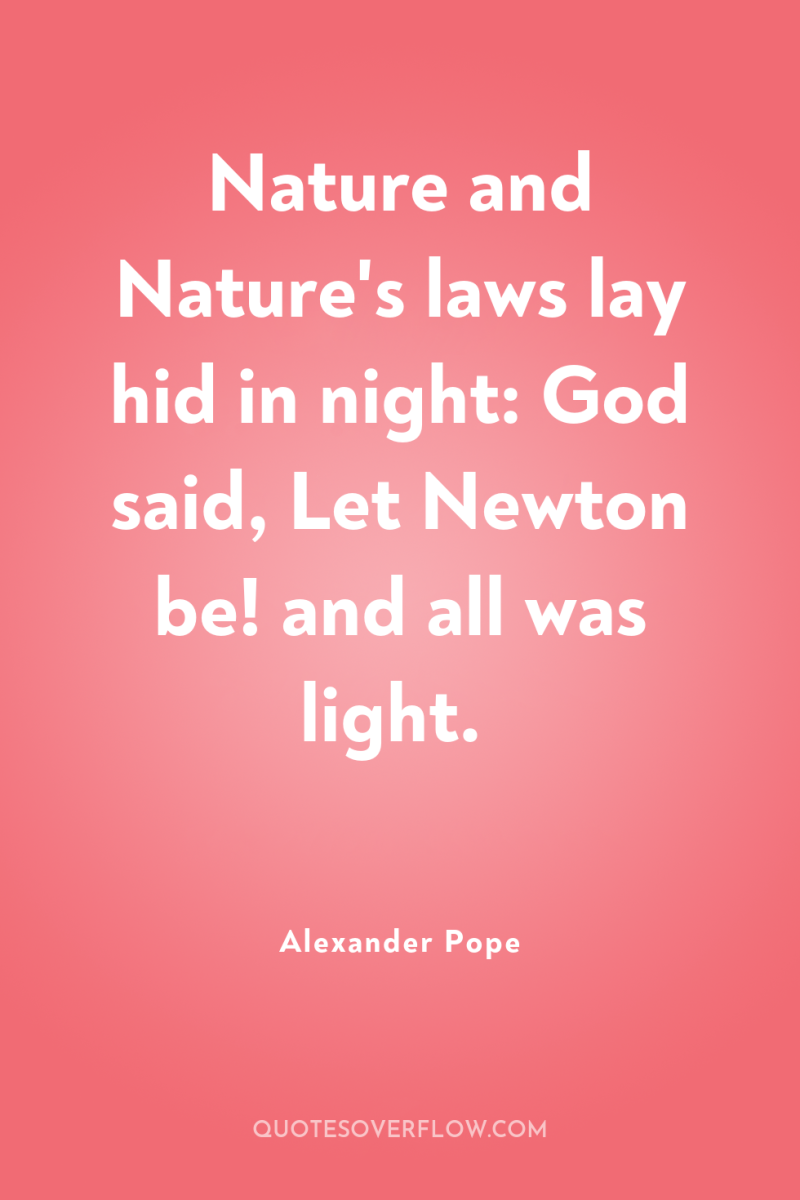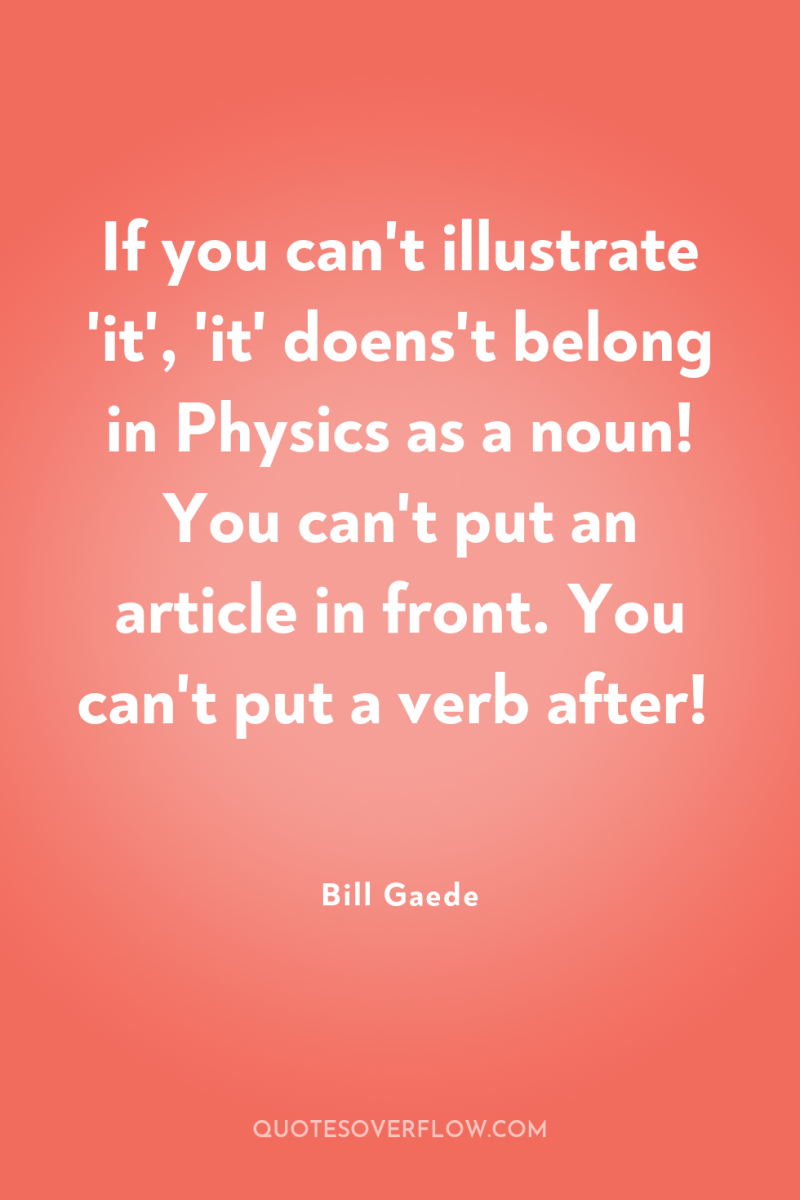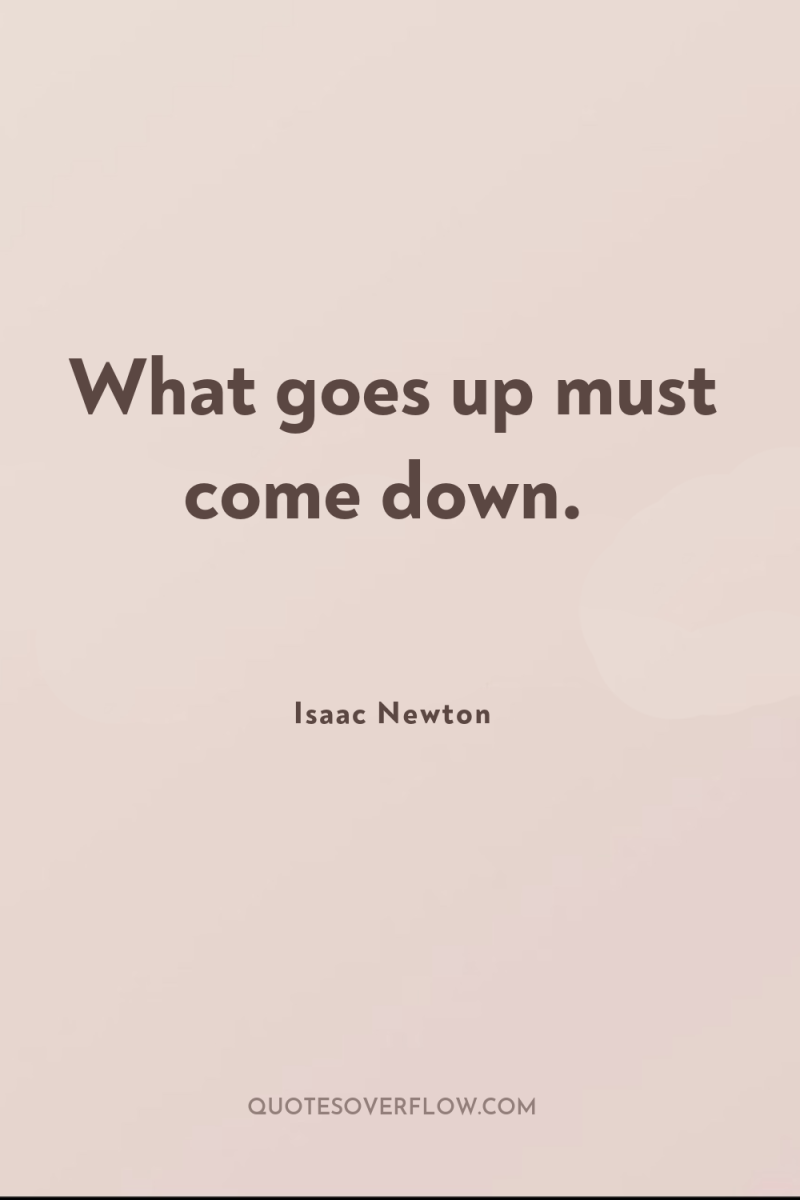1
So this is where all the vapid talk about the 'soul' of the universe is actually headed. Once the hard-won principles of reason and science have been discredited, the world will not pass into the hands of credulous herbivores who keep crystals by their sides and swoon over the poems of Khalil Gibran. The 'vacuum' will be invaded instead by determined fundamentalists of every stripe who already know the truth by means of revelation and who actually seek real and serious power in the here and now. One thinks of the painstaking, cloud-dispelling labor of British scientists from Isaac Newton to Joseph Priestley to Charles Darwin to Ernest Rutherford to Alan Turing and Francis Crick, much of it built upon the shoulders of Galileo and Copernicus, only to see it casually slandered by a moral and intellectual weakling from the usurping House of Hanover. An awful embarrassment awaits the British if they do not declare for a republic based on verifiable laws and principles, both political and scientific.Christopher Hitchens

2
Nature and Nature's laws lay hid in night: God said, Let Newton be! and all was light.Alexander Pope

3
If you can't illustrate 'it', 'it' doens't belong in Physics as a noun! You can't put an article in front. You can't put a verb after!Bill Gaede
4
A number of years ago, when I was a freshly-appointed instructor, I met, for the first time, a certain eminent historian of science. At the time I could only regard him with tolerant condescension. I was sorry of the man who, it seemed to me, was forced to hover about the edges of science. He was compelled to shiver endlessly in the outskirts, getting only feeble warmth from the distant sun of science- in-progress; while I, just beginning my research, was bathed in the heady liquid heat up at the very center of the glow. In a lifetime of being wrong at many a point, I was never more wrong. It was I, not he, who was wandering in the periphery. It was he, not I, who lived in the blaze. I had fallen victim to the fallacy of the 'growing edge;' the belief that only the very frontier of scientific advance counted; that everything that had been left behind by that advance was faded and dead. But is that true? Because a tree in spring buds and comes greenly into leaf, are those leaves therefore the tree? If the newborn twigs and their leaves were all that existed, they would form a vague halo of green suspended in mid-air, but surely that is not the tree. The leaves, by themselves, are no more than trivial fluttering decoration. It is the trunk and limbs that give the tree its grandeur and the leaves themselves their meaning., 'it is because I have stood on the shoulders of giants.Isaac Asimov

5
What goes up must come down.Isaac Newton
6
...The Presidential election has given me less anxiety than I myself could have imagined. The next administration will be a troublesome one, to whomsoever it falls, and our John has been too much worn to contend much longer with conflicting factions. I call him our John, because, when you were at the Cul de sac at Paris, he appeared to me to be almost as much your boy asJohn Adams
7
In the discoveries of science the harmony of the spheres is also now the harmony of life. And as the eerie illumination of science penetrates evermore deeply into the order of nature, the cosmos appears increasingly to be a vast system finely tuned to generate life and organisms of biology very similar, perhaps identical, to ourselves. All the evidence available in the biological sciences supports the core proposition of traditional natural theology - that the cosmos is a specially designed whole with life and mankind as a fundamental goal and purpose, a whole in which all facets of reality, from the size of galaxies to the thermal capacity of water, have their meaning and explanation in this central fact. Four centuries after the scientific revolution apparently destroyed irretrievably man's special place in the universe, banished Aristotle, and rendered teleological speculation obsolete, the relentless stream of discovery has turned dramatically in favor of teleology and design, and the doctrine of the microcosm is reborn. As I hope the evidence presented in this book has shown, science, which has been for centuries the great ally of atheism and skepticism, has become at last, in the final days of the second millennium, what Newton and many of its early advocates had so fervently wished - the "defender of the anthropocentric faith.Michael Denton
8
Things that look like they were designed, probably were.. If intelligence is an operative component of the universe, a science that methodologically excludes its existence will be susceptible to being trapped in an endless chase for materialistic causes that do not exist.. Where there are sufficient grounds for inferring intelligent causation, based on evidence of "specified complexity, " it should be considered as a component of scientific theories. Inclusion of intelligent causation in the scientific equation is not novel and has not impeded the practice of science in the past, e.g. Newton and Kepler, in an age when science was not constrained by a philosophical materialism, and by many current scientists who have remained open to following the evidence where it leads.Donald L. Ewert
9
Newton's work on gravity led to the discovery of the Lagrange point, a place where opposing forces cancel one another out, and a body may remain at relative rest. This is where I am right now; the forces in my life confound one another. Better, for the moment, to be here and now, without history or future.Nick Harkaway
10
I "love" reading. It makes me feel like I am swallowing up Christ, Homer, Confucius, Newton, Franklin, Socrates, Caesar, and the whole world into one gigantic invincible Sir Moffat. Mine is creative reading. I read building empires in mind. I pray I won't read and read and forget to marry.Moffat Machingura
11
Physical reality does not require that we be pleased with its mechanism.Kevin Michel
12
Mindfulness is observing and asking why. Millions saw the apple fall but Newton asked why.Amit Ray
13
One day at Fenner's (the university cricket ground at Cambridge), just before the last war, G. H. Hardy and I were talking about Einstein. Hardy had met him several times, and I had recently returned from visiting him. Hardy was saying that in his lifetime there had only been two men in the world, in all the fields of human achievement, science, literature, politics, anything you like, who qualified for the Bradman class. For those not familiar with cricket, or with Hardy's personal idiom, I ought to mention that “the Bradman class” denoted the highest kind of excellence: it would include Shakespeare, Tolstoy, Newton, Archimedes, and maybe a dozen others. Well, said Hardy, there had only been two additions in his lifetime. One was Lenin and the other Einstein.C.P. Snow
14
It is good to recall that three centuries ago, around the year 1660, two of the greatest monuments of modern history were erected, one in the West and one in the East; St. Paul's Cathedral in London and the Taj Mahal in Agra. Between them, the two symbolize, perhaps better than words can describe, the comparative level of architectural technology, the comparative level of craftsmanship and the comparative level of affluence and sophistication the two cultures had attained at that epoch of history. But about the same time there was also created–and this time only in the West–a third monument, a monument still greater in its eventual import for humanity. This was Newton's Principia, published in 1687. Newton's work had no counterpart in the India of the Mughals.Abdus Salam
15
Until Einstein (roughly), THE universe of Newton was, for us, THE universe. With Einstein, it became A universe. Something similar happen to man. A new 'man' was produced, just as good, certainly contraditory to the old one. THE man became A man, otherwise a 'conceptual construction', one among the infinity of possible ones.Alfred Korzybski
16
His laws changed all of physics and astronomy. His laws made it possible to calculate the mass of the sun and planets. The way it's done is immensely beautiful. If you know the orbital period of any planet, say, Jupiter or the Earth and you know its distance to the Sun; you can calculate the mass of the Sun. Doesn't this sound like magic? We can carry this one step further - if you know the orbital period of one of Jupiter's bright moons, discovered by Galileo in 1609, and you know the distance between Jupiter and that moon, you can calculate the mass of Jupiter. Therefore, if you know the orbital period of the moon around the Earth (it's 27.32 days), and you know the mean distance between the Earth and the moon (it's about 200, 039 miles), then you can calculate to a high degree of accuracy the mass of the Earth. … But Newton's laws reach far beyond our solar system. They dictate and explain the motion of stars, binary stars, star clusters, galaxies and even clusters of galaxies. And Newton's laws deserve credit for the 20th century discovery of what we call dark matter. His laws are beautiful. Breathtakingly simple and incredibly powerful at the same time. They explain so much and the range of phenomena they clarify is mind boggling. By bringing together the physics of motion, of interaction between objects and of planetary movements, Newton brought a new kind of order to astronomical measurements, showing how, what had been a jumble of confused observations made through the centuries were all interconnected. .Walter Lewin
17
The analytical geometry of Descartes and the calculus of Newton and Leibniz have expanded into the marvelous mathematical method–more daring than anything that the history of philosophy records–of Lobachevsky and Riemann, Gauss and Sylvester. Indeed, mathematics, the indispensable tool of the sciences, defying the senses to follow its splendid flights, is demonstrating today, as it never has been demonstrated before, the supremacy of the pure reason.Nicholas Murray Butler
18
If you’ve managed to do one good thing, the ocean doesn’t care. But when Newton’s applefell toward the earth, the earth, ever so slightly, felltoward the apple as well.Ellen Bass
19
There is a reward structure in science that is very interesting: Our highest honors go to those who disprove the findings of the most revered among us. So Einstein is revered not just because he made so many fundamental contributions to science, but because he found an imperfection in the fundamental contribution of Isaac Newton.Carl Sagan
20
From a philosophical point of view, Leibniz's most interesting argument was that absolute space conflicted with what he called the principle of the identity of indiscernibles (PII). PII says that if two objects are indiscernible, then they are identical, i.e. they are really one and the same object. What does it mean to call two objects indiscernible? It means that no difference at all can be found between them--they have exactly the same attributes. So if PII is true, then any two genuinely distinct objects must differ in at least one of their attributes--otherwise they would be one, not two. PII is intuitively quite compelling. It certainly is not easy to find an example of two distinct objects that share all their attributes. Even two mass-produced factory goods will normally differ in innumerable ways, even if the differences cannot be detected with the naked eye. Leibniz asks us to imagine two different universes, both containing exactly the same objects. In Universe One, each object occupies a particular location in absolute space. In Universe Two, each object has been shifted to a different location in absolute space, two miles to the east (for example). There would be no way of telling these two universes apart. For we cannot observe the position of an object in absolute space, as Newton himself admitted. All we can observe are the positions of objects relative to each other, and these would remain unchanged--for all objects are shifted by the same amount. No observations or experiments could ever reveal whether we lived in universe One or Two.Samir Okasha
21
What Galileo and Newton were to the seventeenth century, Darwin was to the nineteenth.Bertrand Russell
22
There was yet another disadvantage attaching to the whole of Newton’s physical inquiries, .. the want of an appropriate notation for expressing the conditions of a dynamical problem, and the general principles by which its solution must be obtained. By the labours of LaGrange, the motions of a disturbed planet are reduced with all their complication and variety to a purely mathematical question. It then ceases to be a physical problem; the disturbed and disturbing planet are alike vanished: the ideas of time and force are at an end; the very elements of the orbit have disappeared, or only exist as arbitrary characters in a mathematical formula. .George Boole
23
Newton was asked as a mathematician, not as a moralist. He replied 'Gentlemen, in applied mathematics, you must describe your unit.Isabel Paterson
24
I trust Winsor and Newton and I paint directly upon it.Edward Hopper